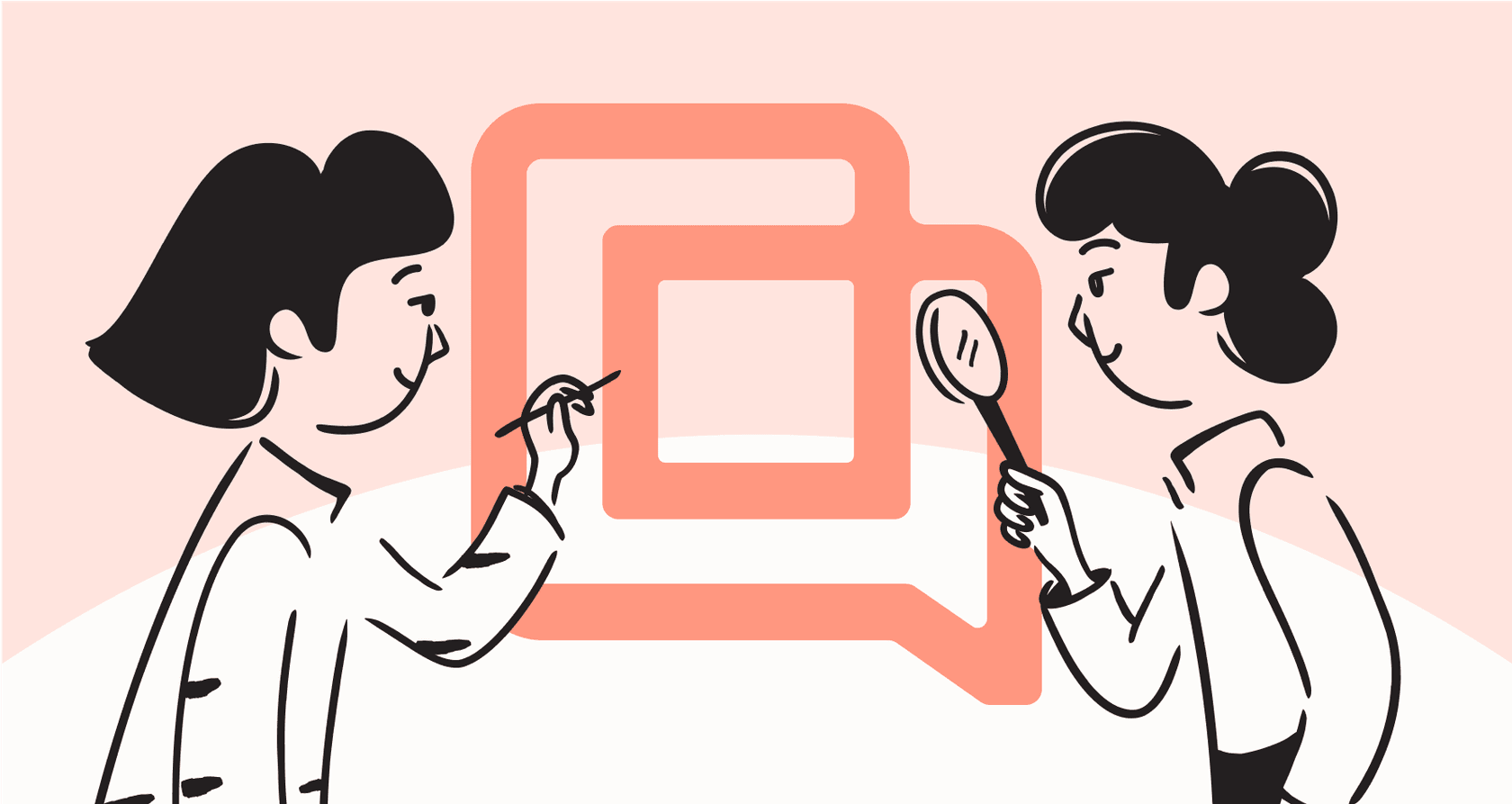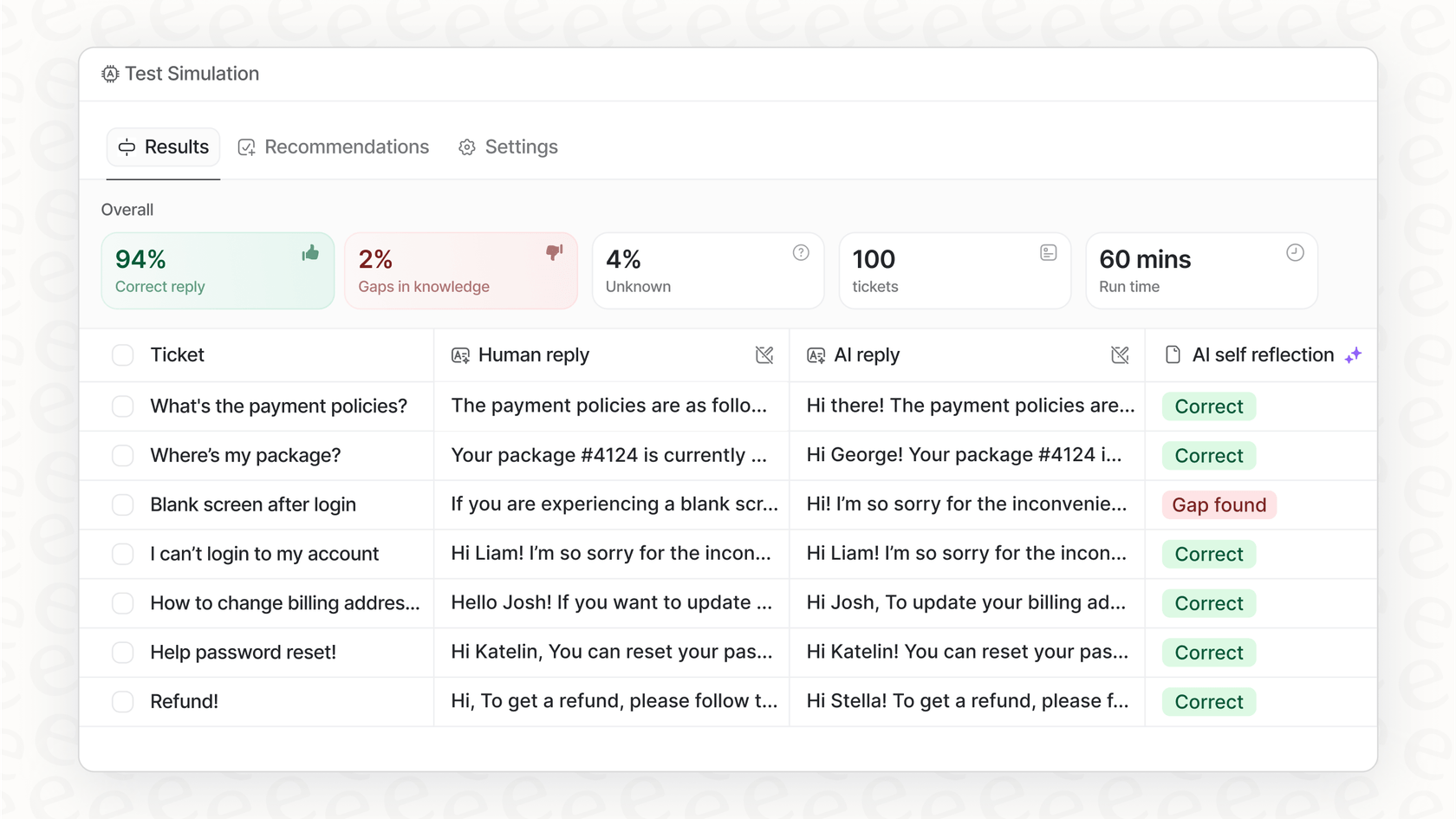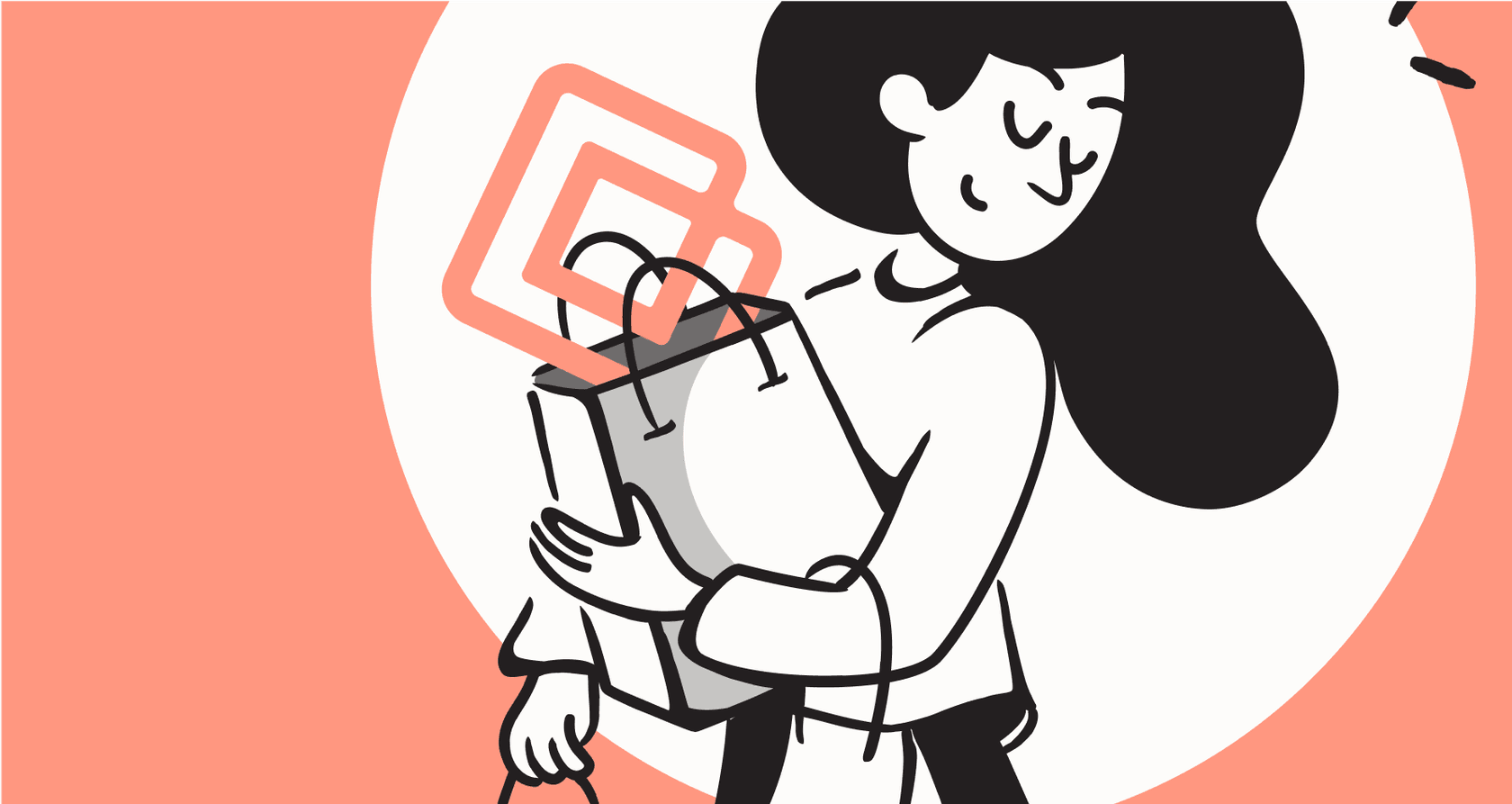Gorgias vs Help Scout: An honest comparison for 2026

Kenneth Pangan
Last edited January 16, 2026

Picking the right helpdesk is a pretty big deal. It’s the command center for your entire customer experience, and choosing the right fit ensures your agents stay productive and your customers stay happy. For businesses that are growing, the choice often comes down to two major players: Gorgias and Help Scout. Gorgias is a highly focused specialist for e-commerce, while Help Scout serves as a flexible all-rounder.
So, how do you actually decide? In this article, we’ll give you a straightforward, no-fluff comparison of their features, AI smarts, and how they charge. We’ll also let you in on a little secret: your helpdesk is just the starting point. The real magic happens when you add a smart AI layer on top, which can turn your support team from a cost center into a growth engine.
What is Gorgias?
Gorgias is a customer experience platform designed from the ground up specifically for e-commerce brands. Its whole reason for being is to help online stores pull all their customer conversations into one place and turn support interactions into sales opportunities. It gathers messages from email, social media DMs, post comments, SMS, and voice into a single feed. But its real strength is how deeply it connects with e-commerce platforms.
If you’re running on Shopify, BigCommerce, or Magento, Gorgias feels like a part of your store. Your agents can see customer data, edit orders, process refunds, and check subscription details without ever having to switch tabs. This tight-knit relationship with the Shopify ecosystem is a major advantage, helping teams solve problems faster and even find chances to sell. And when you're looking to add another layer of intelligence, you'll find that eesel AI integrates with Gorgias perfectly to boost its capabilities.
What is Help Scout?
Help Scout is more of a general-purpose customer support tool, well-known for being simple and putting people first. While Gorgias is all about retail, Help Scout is made for a much broader audience, from SaaS startups to universities.
Its main tools include shared inboxes for teamwork, a solid knowledge base feature called "Docs," and an embeddable help widget they call "Beacon." The whole idea behind the platform is to encourage personal, helpful conversations instead of just cranking through tickets. It’s a great fit for small and medium-sized businesses that want a clean, easy-to-use interface and don't need all the heavy e-commerce features Gorgias offers. It does have a Shopify integration, but it’s more for looking up order history than for making changes, which shows its wider focus.
Core features and focus
The biggest difference between these two platforms really comes down to who they’re for. Think of it as a specialized tool versus a generalist one.
E-commerce specialization vs general-purpose support
Gorgias is loaded with features tailor-made for online stores. It can track how much revenue is generated from support chats, use sentiment analysis to flag urgent e-commerce problems like "defective item" or "shipping issue," and has built-in integrations for Instagram and Facebook comments, which are huge sales and support channels for direct-to-consumer brands.
Omnichannel capabilities and integrations
Gorgias is fantastic at pulling all your e-commerce channels into one dashboard. It handles Facebook, Instagram (including comments on posts and ads), SMS, and voice right out of the box. It also connects with over 100 key e-commerce apps like Klaviyo, Yotpo, and Recharge, letting you build a fully connected customer experience.
Help Scout manages email and live chat without a hitch and connects to social media through other integrations, but they aren't as deeply woven into the platform as they are in Gorgias. Instead, its integration library is stronger for general business tools like Salesforce, Jira, and HubSpot. This makes it a better option for teams whose daily work goes beyond just the e-commerce world.
The takeaway on features
Your business model should really guide your decision here. If you live and breathe e-commerce, Gorgias has the purpose-built features to help you sell more and provide smarter support. If what you need is streamlined communication and organization that works for any industry, Help Scout offers a powerful, clean, and adaptable solution.
| Feature | Gorgias | Help Scout |
|---|---|---|
| Who it's for | E-commerce brands | SMBs, SaaS, any industry |
| Shopify Integration | Deep (edit orders, refunds) | Basic (view order history) |
| Social Media | Built-in (FB/IG comments, DMs) | Through integrations |
| AI Focus | E-commerce tasks, sales | Drafting, summarizing, KB answers |
| Knowledge Base | Integrated help center | Strong built-in feature ("Docs") |
| Pricing Model | Per billable ticket | Per "contact helped" |
| Standout Feature | Revenue tracking from support | "Beacon" embeddable widget |
A look at their AI and automation
Both platforms have their own AI features, but they approach it differently, and both have their specific strengths. This is where it really pays to understand your options.
How Gorgias uses AI
Gorgias's AI is highly focused on automating common e-commerce jobs. It uses intent detection to figure out what a customer is asking for (like an order status or a return request) and can automatically tag the ticket or send a pre-written reply using "Flows." It’s a practical tool built to handle the flood of repetitive questions that online stores get every day.
Its AI is highly effective and specialized for the retail environment. It works seamlessly inside the Gorgias system to ensure that high-volume stores can manage their support load efficiently. The pricing model for these features reflects the value of automated resolutions, allowing teams to scale their efficiency as they grow.
How Help Scout uses AI
Help Scout's AI is more focused on helping agents be more efficient, not trying to replace them. It can summarize long email chains to get new agents up to speed, help draft replies based on past conversations and knowledge base articles, and suggest relevant help docs. Think of it as a helpful assistant that helps your team give better, faster human support.
The focus here is on assisting the human agent rather than full end-to-end automation. It provides great tools for drafting and summarizing, though it generally requires an agent to finalize the action. It's limited primarily to the knowledge you have stored inside Help Scout.
The third option for a smarter, more flexible AI layer
Here’s the thing: you don't have to be locked into your helpdesk's native AI. A dedicated AI platform that works with any tool can give you a lot more power and flexibility, whether you end up choosing Gorgias, Help Scout, or something else.
This is where a tool like eesel AI fits in. It’s an intelligent AI layer that connects directly to the helpdesk and other tools you already use, complementing the capabilities of your built-in solutions.
Here’s how it’s different:
-
It unifies all your knowledge: eesel AI doesn't just learn from your helpdesk. It instantly connects to all your company knowledge, past tickets, your Confluence wiki, Google Docs, Notion pages, and even Slack threads. This gives it the full picture of your business, which means it can give much more accurate and complete answers.
-
You get total control and custom actions: You can define your AI's exact personality, tone of voice, and the specific actions it’s allowed to take. Need it to look up an order in Shopify, check a shipping status through an API, or escalate a ticket with a specific tag? You can build that yourself, no developers required.
-
You can go live in minutes, not months: Setting up eesel AI is completely self-serve. You can connect your helpdesk with a single click and use its powerful simulation mode. This lets you test your AI on thousands of your past tickets to see exactly how it would have performed. You get a clear forecast of your automation rate before it ever talks to a real customer.

Comparing pricing models
Let's talk about money. Pricing can be a big deciding factor, and Gorgias and Help Scout have very different philosophies here.
Gorgias pricing explained
Gorgias's pricing plans are based on the number of "billable tickets" your team handles each month. Each plan, from Starter to Enterprise, includes a certain number of tickets. This tiered approach allows businesses to select a plan that matches their current size while providing a clear path for scaling up. Advanced automation features are available to help teams maximize their efficiency as they grow.
This model is particularly beneficial for brands that want to align their support costs with their ticket volume, ensuring they only pay for the scale they need during different periods of the year.
Help Scout pricing explained
Help Scout has a pretty unique approach with its pricing. Their plans are based on the number of unique "contacts helped" per month. This tends to be a bit more predictable than per-ticket pricing, and one of its biggest perks is that all plans include unlimited users. Their AI features are also included in the main plans without an extra fee.
While this is a fair model, your costs can still go up and down depending on how many different customers you talk to each month.
A more predictable alternative with eesel AI's pricing
If you're looking for real predictability, eesel AI's pricing offers a transparent option. Plans are based on a flat number of "AI interactions" per month, which covers any AI-generated reply or action.
The benefit is simple: there are no per-resolution fees. You'll have a clear understanding of your support costs regardless of how many resolutions the AI achieves. Your monthly or annual cost is fixed, which makes it easy to budget and scale without getting financially penalized for your success. It's just straightforward pricing that works with you.
What's the call?
After all that, which one should you go with?
Choose Gorgias if: You run an e-commerce store on a platform like Shopify. Your main goal is to automate e-commerce questions and turn your support team into a revenue-generating machine. It’s a mature, reliable platform that powers customer service for thousands of leading brands.
Choose Help Scout if: You’re a small-to-medium business in any industry and you care most about having a clean, simple interface and a human-first approach to customer service. It’s a versatile and well-loved tool for good reason.
Both are great platforms. The "best" one is just the one that fits your business and how you think about support.
Give your chosen helpdesk a brain that actually works for you
Remember, your helpdesk is just one piece of the puzzle. The real power comes from an AI that adapts to your business and integrates seamlessly with your existing tools.
Whether you land on Gorgias or Help Scout, eesel AI is the solution that makes your choice even better. It complements the gaps left by native AI, connects all your scattered knowledge, and puts you in complete control of your automation strategy. Instead of changing your entire workflow, you can plug a more powerful brain into the setup you already have.
Ready to see what a truly flexible AI can do for your team? Sign up for eesel AI and go live in minutes, not months.
This video provides a detailed comparison of Gorgias vs Help Scout, exploring key differentiators like features and pricing to help you choose the best fit.
Frequently asked questions
Your business model is the primary deciding factor. Gorgias is designed specifically for e-commerce brands, excelling with deep integrations into platforms like Shopify. Help Scout is a general-purpose solution ideal for a broader range of small to medium-sized businesses across various industries.
Gorgias is purpose-built for e-commerce, offering deep integrations that allow agents to edit orders and process refunds directly from the helpdesk. It also has strong built-in omnichannel support for e-commerce channels like Instagram and Facebook comments, and focuses on turning support into sales opportunities.
Help Scout provides a clean, user-friendly interface with a human-first approach to customer service, making it suitable for any industry. Its strengths lie in streamlined communication, excellent knowledge base features, and flexibility with integrations for general business tools like Salesforce and Jira.
Gorgias's AI focuses on automating e-commerce tasks like intent detection and pre-written replies for common queries, designed to scale with your resolution needs. Help Scout's AI is more agent-assistive, summarizing conversations and drafting replies, aiming to boost human efficiency.
Gorgias offers plans based on ticket volume, providing a scalable model for growing brands. Help Scout uses a "contacts helped" model with unlimited users, offering predictability for teams focused on unique customer reach.
Gorgias excels with deep, built-in integrations for e-commerce platforms and over 100 key e-commerce apps like Klaviyo. Help Scout has a broader integration library for general business tools such as Salesforce and HubSpot, and handles social media primarily through external integrations.
Yes, an external AI platform like eesel AI can significantly boost the capabilities of both helpdesks. It unifies knowledge from all your company's sources, allows for custom actions, and provides a transparent, predictable pricing model, complementing the native AI features.
Share this post

Article by
Kenneth Pangan
Writer and marketer for over ten years, Kenneth Pangan splits his time between history, politics, and art with plenty of interruptions from his dogs demanding attention.



